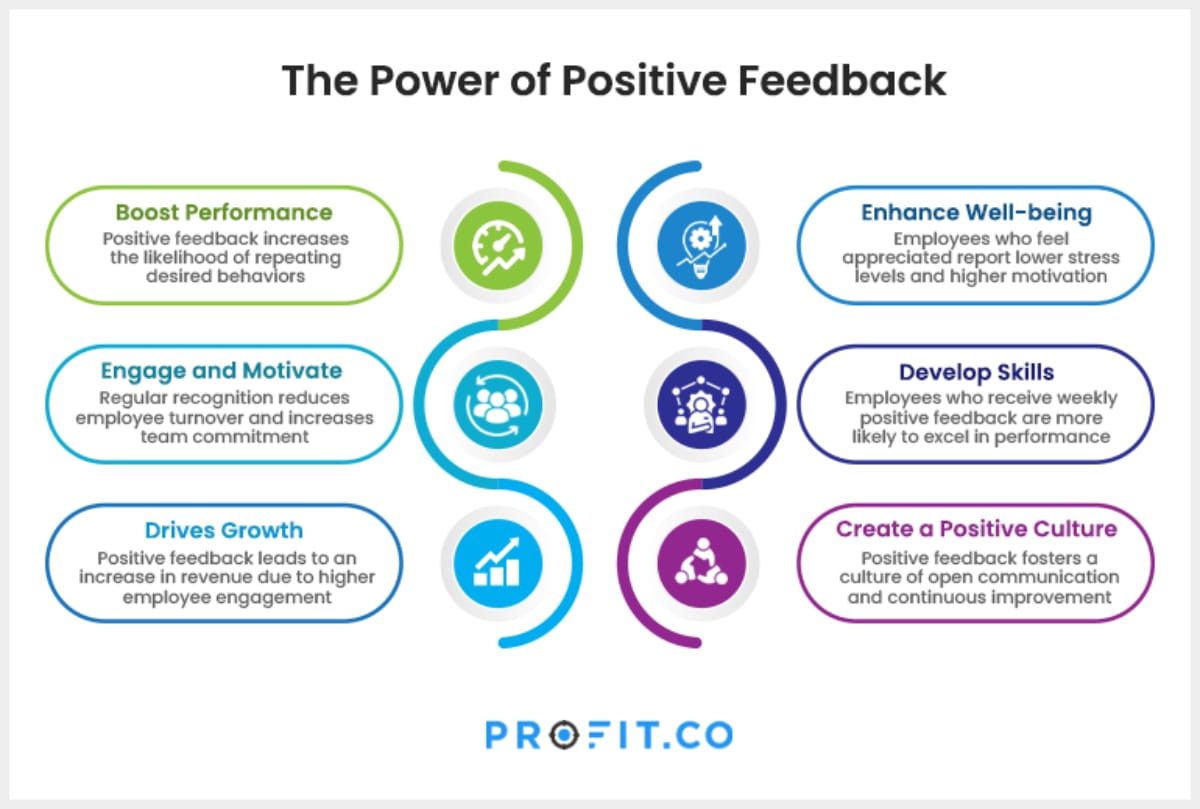Employee Feedback: 3 Reasons Why It's Required

Employee feedback has transcended from being a mere HR checklist item to a core component of organizational success. In a world where employee engagement, satisfaction, and retention are paramount, feedback stands out as a critical tool for fostering growth, nurturing talent, and maintaining a competitive edge. It serves not just as a means to communicate expectations and achievements but also as a vehicle for building stronger teams, enhancing performance, and promoting a culture of open communication and continuous improvement.
This article discusses the three fundamental reasons why employee feedback is not just beneficial but required in the modern workplace, including boosting employee engagement and satisfaction, enhancing performance and professional growth, and fostering a positive workplace culture.
Reason 1: Boosts Employee Engagement and Satisfaction

Employee Engagement Defined
Employee engagement refers to the level of an employee's emotional investment and commitment to their organization and its goals. It's a multifaceted concept that encompasses satisfaction, motivation, and the willingness to go above and beyond in one's role. Engaged employees are not just productive; they are passionate about their work and feel a profound connection to their company.
Feedback's Contribution to Engagement
Feedback plays a pivotal role in enhancing employee engagement. It does so by acknowledging accomplishments, providing constructive criticism, and setting clear expectations. This process helps employees feel valued and understood, driving their motivation and commitment to their roles. Regular, meaningful feedback ensures that employees see a clear linkage between their efforts and the organization's success, further embedding their sense of belonging and investment in the company's future.
Real-World Examples and Statistics
Studies and surveys consistently highlight the positive correlation between feedback and employee engagement. For instance, a Gallup poll found that employees who receive regular feedback are more engaged and less likely to leave their jobs than those who do not. Companies that excel in providing consistent and constructive feedback report higher levels of employee satisfaction and lower turnover rates.

Strategies for Providing Effective Feedback
To boost engagement and satisfaction, feedback should be:
- Timely: Provided close to the event to ensure relevance and immediacy.
- Specific: Focused on particular actions or behaviors rather than general traits.
- Balanced: Combining positive reinforcement with constructive criticism.
- Regular: Integrated into the daily workflow rather than saved for annual reviews.
Implementing these strategies not only enhances employee engagement, but also significantly contributes to overall job satisfaction, creating a more motivated and committed workforce.
Reason 2: Enhances Performance and Professional Growth

Link Between Feedback and Performance Improvement
Feedback serves as a mirror for employees, reflecting both their strengths and areas for improvement. It is a fundamental tool for performance enhancement, enabling individuals to understand how their actions align with the organization's goals and expectations. By providing regular and specific feedback, managers can help employees adjust their efforts in real-time, leading to immediate improvements in performance.
Role of Constructive Criticism in Professional Development
Constructive criticism is a cornerstone of professional growth. It challenges employees to stretch their capabilities and step out of their comfort zones. When delivered effectively, it fosters resilience, encourages adaptability, and cultivates a growth mindset, enabling employees to embrace challenges as opportunities for learning and development.
Case Studies Showing the Impact of Feedback on Career Growth
Numerous case studies from leading corporations demonstrate the positive impact of a robust feedback culture on career growth. Companies like Google and Microsoft have implemented continuous feedback mechanisms that not only aid in immediate performance improvement but also chart a path for long-term career development, significantly enhancing employee retention and job satisfaction.
Tips for Implementing a Continuous Feedback System
To make feedback an integral part of professional growth, organizations should:
- Encourage a culture of open dialogue where feedback is sought as well as given.
- Utilize technology and tools that facilitate continuous feedback and performance tracking.
- Train managers and leaders in effective feedback techniques, emphasizing empathy and clarity.
- Set clear, measurable goals and use feedback to guide employees towards achieving them.
Reason 3: Creates a Positive Workplace Culture

Explanation of Workplace Culture and Its Significance
Workplace culture embodies the ethos, values, and practices that define the character and personality of an organization. It influences how employees interact with each other and with the organization at large. A positive workplace culture promotes inclusivity, respect, and collaboration, making employees feel valued and part of a greater purpose.
Influence of Feedback on Creating a Supportive and Transparent Environment
Feedback is a powerful tool for cultivating a culture of transparency and support. It breaks down barriers between hierarchical levels, encourages open communication, and builds trust among team members. When employees feel free to express their thoughts and know that their input is valued, it strengthens the sense of community and belonging, essential components of a positive workplace culture.
Success Stories of Companies with Strong Feedback Cultures
Organizations renowned for their vibrant workplace cultures, such as Salesforce and Apple, attribute much of their success to their feedback-driven approach. These companies have embedded feedback into their core practices, ensuring that it is not just a mechanism for improvement but a way of life that fosters mutual respect, understanding, and continuous learning.
Guidelines for Cultivating a Feedback-Friendly Culture
To foster a feedback-friendly culture, businesses should:
- Normalize feedback by making it a regular part of everyday conversations.
- Ensure feedback is multidirectional, encouraging employees at all levels to share insights.
- Recognize and reward employees who actively participate in the feedback process.
- Create safe spaces for giving and receiving feedback, emphasizing confidentiality and respect.
Challenges in Implementing Effective Feedback Systems
Despite the clear benefits, many organizations face hurdles in creating an effective feedback system. These challenges include:
- Resistance to feedback due to fear of conflict or negative reactions.
- Lack of training on how to give and receive feedback constructively.
- Feedback being perceived as a formality rather than a tool for genuine improvement.
Solutions and Best Practices for Overcoming These Challenges
To overcome these obstacles, organizations can:
- Foster a growth mindset, highlighting feedback as a pathway to excellence.
- Provide comprehensive training on effective feedback techniques.
- Implement feedback tools and platforms to facilitate easy and anonymous feedback exchanges.

Final Thoughts
Employee feedback is an indispensable tool for driving engagement, enhancing performance, and cultivating a positive workplace culture. It not only serves as a foundation for individual and organizational growth but also as a catalyst for fostering a supportive, transparent, and inclusive work environment. By understanding the importance of feedback and overcoming the challenges associated with its implementation, organizations can unlock their full potential, ensuring long-term success and sustainability.
In closing, the call to action for businesses is clear: prioritize feedback as a strategic asset. By doing so, they not only invest in their employees' growth and satisfaction but also in the overall health and competitiveness of their organization.
Key Takeaways
| Reason | Key Takeaways |
|---|---|
| 1. Boosts Employee Engagement and Satisfaction | - Regular, specific feedback increases job satisfaction and engagement. - Acknowledgement and constructive criticism are vital. - Timely and balanced feedback is crucial. |
| 2. Enhances Performance and Professional Growth | - Feedback directly impacts performance improvement. - Constructive criticism promotes professional development. - Continuous feedback systems support long-term career growth. |
| 3. Creates a Positive Workplace Culture | - Feedback cultivates transparency and support. - A feedback-friendly culture encourages open communication and trust. - Success is attributed to embedding feedback in core practices. |





